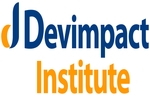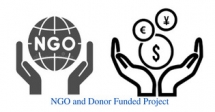|
|
Training on Strategic Brand Management
USD 1,150 |
Venue: Nairobi
Other Dates
| Venue | Date | Fee | |
|---|---|---|---|
| Nairobi , Kenya | 17 - 21 Mar, 2025 | USD1150 | |
| Nairobi , Kenya | 28 Apr - 02 May, 2025 | USD1150 | |
| Nairobi , Kenya | 26 - 30 May, 2025 | USD1150 | |
| Nairobi , Kenya | 23 - 27 Jun, 2025 | USD1150 | |
| Nairobi , Kenya | 28 Jul - 01 Aug, 2025 | USD1150 | |
| Nairobi , Kenya | 25 - 29 Aug, 2025 | USD1150 | |
| Nairobi , Kenya | 29 Sep - 03 Oct, 2025 | USD1150 | |
| Nairobi , Kenya | 20 - 24 Oct, 2025 | USD1150 | |
| Nairobi , Kenya | 10 - 14 Nov, 2025 | USD1150 | |
| Nairobi , Kenya | 08 - 12 Dec, 2025 | USD1150 |
Strategic brand management is designed to support businesses in accomplishing long-term business objectives, increasing revenue, and gaining (or improving) brand recognition. Successful brands are built on the foundation of a meaningful brand strategy that provides the framework for what a brand stands for and how it will be communicated to the market. Your brand defines and upholds your company’s reputation and mirrors your customers’ expectations and experiences. In the face of fierce competition, a company’s brand helps it stand out and enables it to command higher prices for its goods and services. This course on strategic brand management equips participants with skills on how to create, position, market and manage brands effectively.
Target Participants
This course is designed for Brand Managers, Sales and Marketing Professionals, Business Development Professionals, Account Executives, Product Managers and Entrepreneurs.
Course Duration
Online7 Days
Classroom-based 5 Days
What you will learn
By the end of this course the participants will be able to:
- Understand the benefits of branding and how brands create value.
- Identify the best brand strategies in alignment with existing and new Market Trends
- Explore the elements of Brand Equity and identify how to build sustainable brands.
- Determine brand values and select appropriate market positions.
- Plan and Create marketing initiatives.
- Build brands from a broad organizational perspective!
- Measure brand health
Course Outline
Brand Management
- Definitions – brand, brand vs product, brand architecture
- Why do brands matter, what can be branded, brand assets, brand strengths and brand values.
- What is brand management, definition of brand equity, Providing a link from the past to the present and on to the future?
- The crucial importance of building consumer knowledge/perception
- Creating brand equity
- Designing appropriate product category structures
- Key aspects of strong brands
Brand Equity and the Consumer
- The essentials of brand positioning
- Selecting appropriate brand identities
- Logos, symbols characters and slogans, don’t forget the packaging.
- Using personalization techniques to connect with the consumer.
- Developing an appropriate strategy for products, channel strategy, pricing strategy and value engineering
- Taking a joined-up approach to designing brand marketing programs, using personalization techniques to connect with the customer and developing an appropriate strategy for products.
Brand Marketing
- Prospering in the New Media, advertising channels, promotional activities, and media relations
- Sponsoring events and taking a joined-up approach to designing marketing communications
- Working with brand associations, the relationship between existing and new brand associations
- The relationship between brands and channels, geographic factors, brand alliances and co-branding
- The concept of ingredient branding
- Licensing
- A brand as an asset, developing brand financials, e.g., return on investment, future cash flows, net present value.
- Establishing the brand value chain
Brand Performance
- Assessing brand performance
- External environment analysis
- Supporting brand audits with focused tracking surveys
- Using research to identify customer perception of brands, qualitative research methods, quantitative research methods.
- Assessing customer attitudes to brands, brand based comparative methods and marketing based comparative methods, conjoint analysis – pros and cons.
- Residual based methods and valuation-based methods
- Brand strategy, brand architecture and developing a hierarchy of brands.
- Building brand equity
Maintaining Brand Equity
- Introducing new products to the brand
- Considering potential customer perceptions of brand extensions, designing brand extensions
- Naming brand extensions for maximum impact
- Managing brands over an extended period
- Balancing the brand portfolio to reflect changing business strategy and environment, refreshing tired brands, developing acquisitions and divestments.
- Introducing new market segments, introducing new regional/continental markets, international considerations, building global brand equity
- Prospering in the New Media, advertising channels, promotional activities, media relations, sponsoring events, designing marketing communications
Brand Purpose and Experience
- Traditional notions of branding
- Changing market conditions for brands
- A new approach to branding
Brand Design and Delivery
- Brand experiences as the basis for differentiation
- How to design brand experiences, as different from products and services
- Pricing as a differentiating brand experience
Brand Leadership and Alignment
- Aligning the strategies for business, brand, and behavior
- Strategic brand portfolio alignment
- Delivering global brand alignment
Brand Practices and Engagement
- How to design human resource brand best-practices
- A model for engaging employees with the brand
- The ABCs of behavioral change
Training Approach
This course is delivered by our seasoned trainers with vast experience as expert professionals in their respective practice fields. The course is taught through a mix of practical activities, presentations, group works and case studies.
Training manuals and additional reference materials are provided to the participants.
Certification
Upon successful completion of this course, participants will be issued a certificate.
Tailor-Made Course
We can also do this as a tailor-made course to meet organization-wide training needs. A training needs assessment will be done on the training participants to collect data on the existing skills, knowledge gaps, training expectations and tailor-made needs.
Course Booking
Please use the “book now” or “inquire” buttons on this page to either book your space or make further enquiries.
| Nairobi | Feb 17 - 21 Feb, 2025 |
| Nairobi , Kenya | 17 - 21 Mar, 2025 |
| Nairobi , Kenya | 28 Apr - 02 May, 2025 |
| Nairobi , Kenya | 26 - 30 May, 2025 |
| Nairobi , Kenya | 23 - 27 Jun, 2025 |
| Nairobi , Kenya | 28 Jul - 01 Aug, 2025 |
| Nairobi , Kenya | 25 - 29 Aug, 2025 |
| Nairobi , Kenya | 29 Sep - 03 Oct, 2025 |
| Nairobi , Kenya | 20 - 24 Oct, 2025 |
| Nairobi , Kenya | 10 - 14 Nov, 2025 |
| Nairobi , Kenya | 08 - 12 Dec, 2025 |
| USD 1,150.00 | (Classroom-based (Online: $700)) |
Devimpact Institute +254714349537
Related Courses
 Training on Public Financial Management and Administration
Training on Public Financial Management and Administration
5 days, 03 - 07 Feb, 2025
Devimpact Institute
Currency Converter







